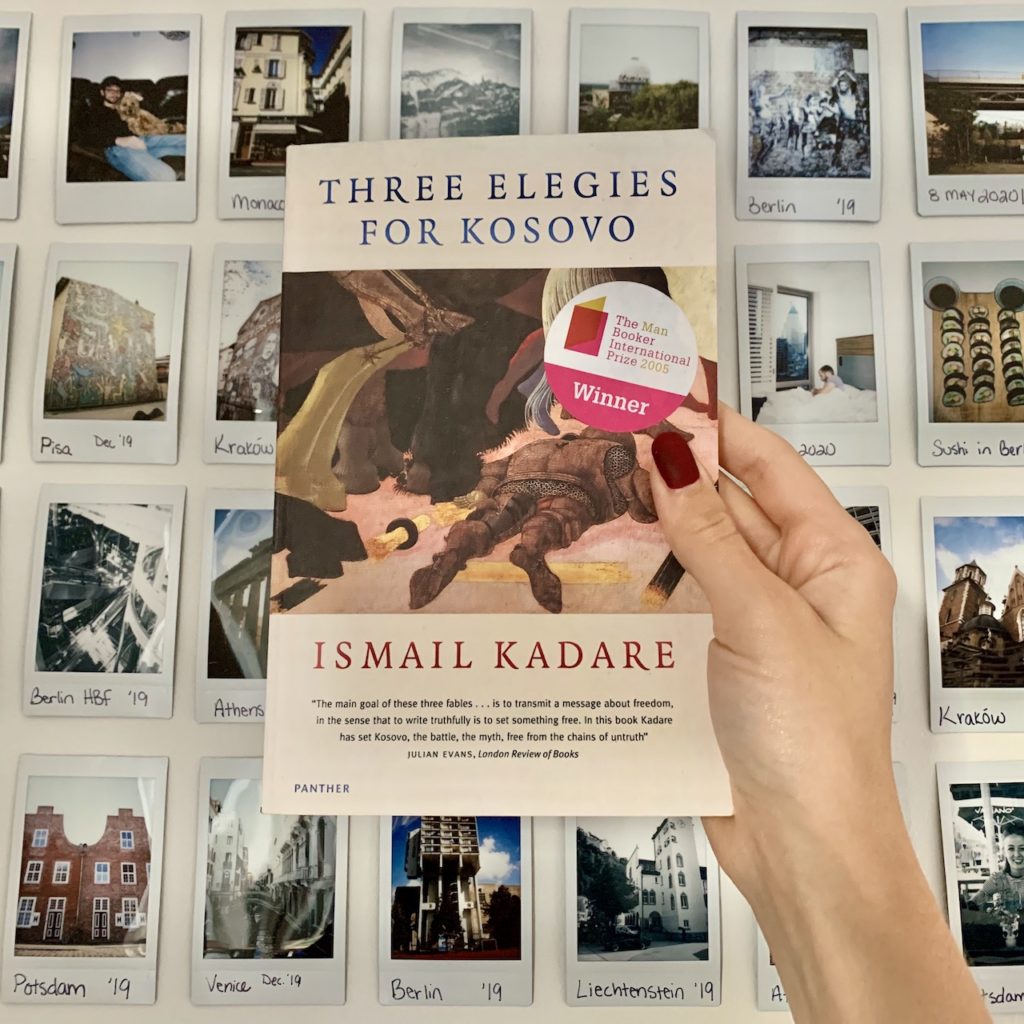The Canterbury Tales meets Kafka in Ismail Kadare’s mini, epic collection entitled Three Elegies for Kosovo. The novella presents three interlinked fables about the 1389 Battle of Kosovo between the invading Ottoman empire and the present-day Balkan states. On the Field of Blackbirds, the Ottomans decisively won after 10 hours, but their reigning Sultan Murad I was killed, and his internal organs buried under the battlefield. In this elegantly crafted novel, Ismail Kadare draws on this infamous battle, now surrounded by legends of treachery and defeat, to illustrate an ideological illness that has brewed for more than six hundred years.
Kadare establishes a series of binaries to situate readers in his tale, which make the battle and succeeding centuries of turmoil seem all the more inevitable—peaceful winters and violent springs, united rulers and conspiring heirs. On the eve of the battle, Ottoman Prince Bayezid’s tutor establishes the final, fatal binary, foregrounding the Balkans’ defeat:
“Tomorrow you shall see that the real instrument of war is not theirs, but ours – dusty and drab like mud, with a single banner, a single commander, and no emblems or flamboyant poets, no commanders thirsting for glory, or sporting long titles, names, and surnames. Obedient, sober, mute, nameless like mud – that is the army of the future.”
The tutor takes his reasoning one step farther, but only in his thoughts:
“He wanted to tell the Prince that if there was a power in the world that they should be afraid of, it wasn’t foolish Europe but the Mongolian hordes. They were even more nameless, and therefore even more apocalyptic.”
The latter observation foreshadows the Ottoman Prince’s eventual demise over a decade later under the Turco-Mongol conqueror Timur. These binaries coupled with the Prince’s foretold death make the Balkans’ defeat appear a simple result of fate, a battle turned into an instant fable, rather than a clash between kingdoms.
Readers experience this immediate transition from historical events into folklore through the two minstrels Gjorg and Vladan, who are from Albania and Serbia respectively. After the battle, the two travel together with several other survivors from the Balkans, condemned to wander the European continent until they find a new home. Although Gjorg and Vladan were once on opposing sides, they recognize the absurdity of their folk songs in canonizing their countries’ ancient feud. Gjorg explains this to a fellow traveler from Hungary:
“For hundreds of years the evil persisted, what I mean is that Serbian and Albanian songs said the exact opposite from each other…particularly when it came to Kosovo, as each side claimed Kosovo was theirs.”
Gjorg and Vladan sing some of their divergent tunes for a dinner party of western European aristocrats, who criticize their oppositional songs in light of the Balkans’ recent defeat. Their condemnation is telling of how these international actors perceive the Balkan states–by, in true colonial fashion, creating the consolidated Balkan identity, and then condemning the region’s internal strife. Their forced union, in many ways, condemning them to a fate of continual conflict. Throughout the novella, Kadare describes the coerced Balkan identity via mythical means:
“From now on they would have to carry this new name, fossilized and ponderous, on their backs like a curse as they stumbled along like a tortoise in its shell…a communal shell named ‘Balkan’, and it seemed that nobody gave them a second thought, unless to anathematize them.”
Their Balkan shell contains similar imagery to the fabled World Turtle, a creation myth that the world is carried on the back of a large tortoise. Such an allegory commits both the consolidated Balkan identity and their internal conflict to their origin story, making it impossible to escape.
Ultimately, Kadare solidifies the Balkans’ fate through the blood of Ottoman Sultan Murad, which is left on the Field of Blackbirds in 1389 to curse the land. In the final chapter, readers are interred with Sultan Murad I’s organs, who observe the succeeding 600 years of bloodshed. He begs Allah to be removed from the soil and the surrounding strife. Today, the Battle of Kosovo is a national holiday in Serbia, and since the battle, many notable events have fallen on this day, the most recent being the assassination of Archduke Franz Ferdinand, sparking WWI.
STATS
Title: Three Elegies for Kosovo
Author: Ismail Kadare
Translator: Peter Constantine
Publication Year: 1998
Pages: 87

